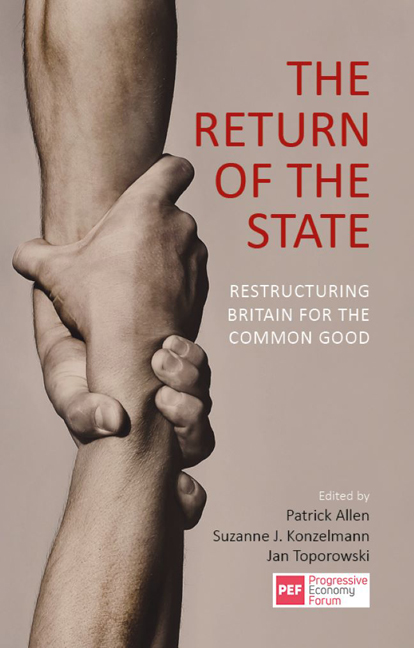1 - Introduction
Published online by Cambridge University Press: 22 December 2023
Summary
The UK economy is in crisis. As a result of the economic policies of recent decades, the lives of millions are insecure. Inequality and poverty in the United Kingdom have risen to levels not experienced since the 1930s. Growth has stuttered and productivity stagnated. Despite numerous promises and eye-catching headlines to “level up” and help those “just about managing”, there has been no concerted economic policy to address the increasing gap in income and wealth in the country. Since 2016 the economy and politics have been paralysed as all other issues have been sidelined by Brexit negotiations, arguments and disagreements. When matters could not have got worse for the United Kingdom, the Covid-19 pandemic brought many sectors of the economy to a standstill.
Between February and August 2020 the lockdown of society to prevent the spread of the virus caused the economy to shrink by an unprecedented 17 per cent. At the same time, the government's furlough scheme, under which it assumed responsibility for 75 per cent of furloughed workers’ wages, was implemented at a cost of L14 billion per month. The government has also lent substantial amounts to companies postponing their VAT and income tax payments. For the first time, people are being paid not to work, unlike unemployment benefit, when people are paid a far lower amount under the condition that they look for work.
The effect on government finances has been predictable. By November 2020 public debt had risen to L2,099 billion, or the equivalent of 99.5 per cent of GDP – a level not seen since 1961.
As the Covid-19 pandemic intensified towards the end of 2020 lockdowns were reintroduced and the furlough scheme extended, but this was too late to save many jobs. There were record redundancies, 370,000, from August to October 2020 and unemployment is expected to rise steadily as companies give up trading or reduce their workforce as a result of Covid-19.
Recovery to pre-pandemic levels is unlikely before the end of 2022, but the economy will also be affected by Brexit arrangements, which commenced on 1 January 2021. The Office for Budget Responsibility (OBR) expects that the effect of this relatively hard Brexit will be to reduce GDP by 4 per cent in the long run.
- Type
- Chapter
- Information
- The Return of the StateRestructuring Britain for the Common Good, pp. 1 - 18Publisher: Agenda PublishingPrint publication year: 2021



